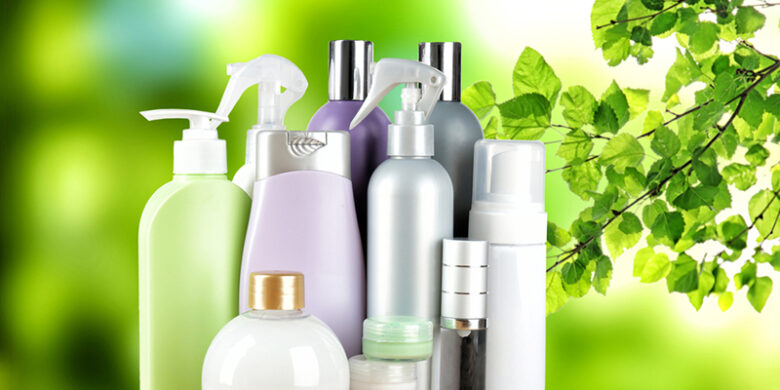
In recent years, there’s been a significant shift in consumer behavior towards products that are both environmentally friendly and ethically produced. This movement has sparked the rise of private label organic skincare, a trend that’s transforming the beauty industry. Entrepreneurs and established brands alike are tapping into this burgeoning market, creating custom skincare formulations that cater to the demand for cleaner, greener beauty solutions.
What is Private Label Organic Skincare?
Private label organic skincare refers to products manufactured by one company but branded and sold under another company’s label. This approach allows businesses to offer unique skin care solutions without having to invest in the costly and time-consuming process of developing their own formulations from scratch. Instead, they work with manufacturers who specialize in creating high-quality, organic skincare products tailored to their brand’s specifications.
The Benefits of Private Labeling
Cost-Effectiveness
One of the primary advantages of private labeling is cost-effectiveness. Developing a skincare line from the ground up requires substantial investment in research, development, production, and marketing. In contrast, private label skin care products allow businesses to leverage existing formulations, significantly reducing overhead costs and time to market.
Customization
Private label manufacturers offer a high degree of customization. Brands can select from a wide range of ingredients, scents, and textures to create custom skin care formulations that align with their brand identity and meet the specific needs of their target audience. This flexibility enables businesses to stand out in a crowded market and build a loyal customer base.
Quality Assurance
Partnering with a reputable private label manufacturer ensures access to high-quality products. These companies are experienced in creating formulations that comply with industry standards and regulations, providing peace of mind for both brands and consumers. By choosing a manufacturer with a strong track record in producing organic skincare, businesses can ensure their products meet the rising demand for clean beauty offerings.
Why Choose Organic Ingredients?
Environmental Impact
Organic skincare products are made from ingredients that are grown without the use of synthetic fertilizers, pesticides, or genetically modified organisms (GMOs). This not only benefits the environment by reducing harmful chemical runoff and soil degradation but also supports biodiversity and sustainable farming practices.
Health Benefits
Many consumers are turning to organic skincare due to concerns about the potential health risks associated with synthetic chemicals found in conventional beauty products. Organic ingredients are typically gentler on the skin and less likely to cause irritation or allergic reactions. Additionally, they often contain higher levels of beneficial nutrients, such as antioxidants and vitamins, which can help improve skin health and appearance.
Ethical Considerations
The rise of private label organic skincare aligns with the growing consumer demand for ethically produced products. Many organic brands prioritize fair trade practices, cruelty-free testing, and eco-friendly packaging, appealing to socially conscious consumers who want to make a positive impact with their purchasing decisions.
How to Get Started with Private Label Organic Skincare
Identify Your Niche
Before launching a private label skincare line, it’s essential to identify your niche within the market. Consider the specific needs and preferences of your target audience, such as anti-aging, acne-prone skin, or sensitive skin. This will help you tailor your products and marketing efforts to resonate with potential customers.
Choose the Right Manufacturer
Selecting the right private label manufacturer is crucial to the success of your skincare line. Look for a company with a proven track record in organic skincare production and a commitment to quality and sustainability. It’s also essential to ensure they offer the customization options you need to create your desired formulations.
Develop Your Brand Identity
Your brand identity will play a significant role in attracting and retaining customers. Consider factors such as packaging design, product names, and marketing messaging to create a cohesive and appealing brand image. Highlight the unique aspects of your products, such as their organic ingredients, ethical production methods, and any specific benefits they offer to consumers.
Focus on Marketing and Distribution
Once your products are ready for launch, focus on building awareness and driving sales through effective marketing and distribution strategies. Utilize social media, influencer partnerships, and content marketing to reach your target audience and showcase the benefits of your private label skin care products. Additionally, consider selling through multiple channels, such as online platforms, brick-and-mortar stores, and subscription services, to maximize your reach and accessibility.
The Future of Private Label Organic Skincare
The demand for organic skincare products shows no signs of slowing down, making private label organic skincare a promising business opportunity. By partnering with experienced manufacturers and leveraging the benefits of customization and quality assurance, brands can create unique and compelling products that cater to the growing consumer demand for clean, ethical beauty solutions.
In conclusion, private label organic skincare offers a cost-effective and efficient way for businesses to enter the lucrative beauty market with custom skin care formulations that resonate with today’s conscious consumers. By focusing on quality, customization, and sustainability, brands can build a successful and impactful presence in the world of clean beauty.







